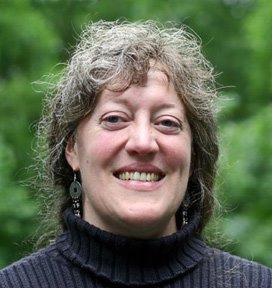It takes a lot of courage to release the familiar and seemingly secure, to embrace the new. But there is no real security in what is no longer meaningful. There is more security in the adventurous and exciting, for in movement there is life, and in change there is power.
~ Alan Cohen
This morning, I woke up to Canadian Geese taking off on their flight south. They were the first geese this season, at least that I’ve consciously noted. The sound was a vivid and poignant reminder that our lives are moving on; it’s another season of change.
Geese live their lives in a normal state of flux. Twice a year, they uproot themselves from everything they know, fly over all kinds of dangerous and unknown territory, and arrive in a new (and yet familiar) home. The geese remind me of how important it is to remain alive and vibrant by embracing change in my own life.
This morning, in one of those strange synoptic hiccups that brings together two seemingly unrelated trivial facts, I started to think about changes in my life, and how we weather those changes. Somehow, in that weird and wonderful synoptic path that I created in my mysterious brain, I related it to our hunter-gatherer ancient ancestors. We all had them, no matter how ancient a culture we hail from. Somewhere, far back in time, we all were hunter-gatherers. Which means that in our cells somewhere is the ancient knowledge of how to live life in a constant state of change.
We humans even thrived in a constant state of change, as sociological studies of most recent hunter gatherer societies have shown. Hunter gatherer societies have more time for play, spend less time working, and have more carefree and joyous lives. (The Other Side of Eden, Hugh Brody)
What happened to us human beings? How did we become so afraid of change? Why is it so difficult for us to embrace new ideas, new situations, think about change? When did that happen to us as a society?
I have been struggling with those questions for the past few months, as I learned to deal simultaneously with divorce, job loss, career change, and identity crisis. At times, it seemed it would be much easier to issue a blanket apology to everyone in my life and go back to the old and familiar, no matter how miserable I was. That security blanket of the known would sometimes looked so irresistibly safe and warm and comfortable that I would almost long for life to go back to the way it was.
And then I would remember how sad and lonely and miserable I was, before.
I learned to breathe through the discomfort of change. I learned to embrace the changes that did arrive in my life, because they were always a positive step forward. I became vibrantly alive because of the changes that entered my life, looked for or not. I woke up!
My journey of the past few years has been agonizingly painful at times. Other times, it has been joyful, alive, powerful, transformative. On the whole, I have learned to prefer the change, for with the change comes power in the form of emotions, trust, engagement, and feeling more alive than I have in years.
Hearing the geese this morning has reminded me of how far I’ve traveled in this thrilling journey of life. They reminded me of my patient friends along the way, who simply sat with me while I agonized, gave me or sent me hugs and a shoulder to cry on when I needed it, always responded with love and caring. The geese reminded me to be thankful for what I have ever present in my life – three loving and lovely daughters, excited to be on this grand new adventure with me, throwing themselves wholeheartedly into the adventure of living with very limited resources while I go back to school. I am grateful to have found a way to go back to school, one stepping stone into a new career that I hope will be enriching and rewarding.
As we begin our journey into autumn, listening to the sounds of our itinerant friends, the Canadian Geese, remember to be thankful for the changes in our lives. Embrace change with your whole heart. Live wild and free and joyfully.
Thursday, August 31, 2006
Subscribe to:
Post Comments (Atom)



No comments:
Post a Comment